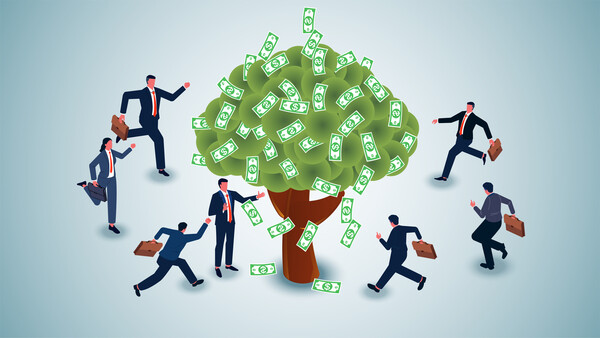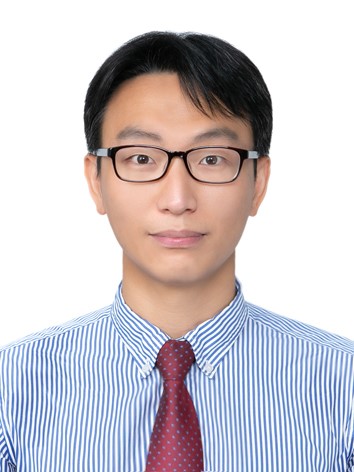As a researcher studying the aging of populations, certain thoughts come to mind when I hear that Korea's gross domestic product (GDP) per capita has surpassed that of Japan. The contrast between Japan, a long-established developed country that has accumulated its wealth and achievements over time, and Korea, which has not yet focused on how to accumulate, even though it is doing well at the moment, is striking.

Immediate income slowly accumulates into assets. This also applies to money, buildings, infrastructure, and knowledge. Assets generate interest, and that interest grows like compound interest. When a country is young, dynamic, and prosperous, it may seem like everything is fine. However, a country is made up of people, and if it doesn't accumulate the necessary assets to age and maintain vitality, it faces challenges similar to those of an individual who enters retirement unprepared.
For the past five years, I have served as the editor of an international journal of geriatric medicine published by a Korean geriatric society. During this time, the journal's citation index has grown nearly ten-fold, and the number of high-quality articles submitted by international researchers has surged. Strangely, however, the number of submissions from Korean researchers has actually decreased. The reason is simple: most institutions in Korea currently calculate the impact factor of an index called SCI(E), which is operated by a foreign company, to assess research achievements and evaluate appointments and promotions. Unfortunately, our journal has not yet been included in this index.
So where are Korean researchers publishing quality research? In foreign journals that are included in this index. This creates an interesting vicious circle. Because the system conveniently outsources the evaluation of researchers' performance to overseas journals, domestic journals don't receive enough papers and ultimately fail. Alternatively, they can pay a significant amount of money to get included in the index quickly.
In Korea, research conducted with public funding is expected to produce papers and intellectual property rights (IPRs) as quickly as possible. As a result, Korean researchers are often giving away their valuable research to overseas publishers, sometimes at a cost of 5 million to 10 million won or more per paper. According to an estimate by the Korea Institute of Science and Technology Information, the cost of publishing such articles exceeded 100 billion won in 2023 alone. With 100 billion won, more than 300 journals—like the one I am involved in editing—could afford to publish articles in abundance, but instead, the foreign currency is flowing out the door. I feel as though valuable achievements and foreign currency are slipping through our fingers. I would raise my voice and make suggestions, but nothing changes. Meanwhile, the knowledge capital gap continues to widen, while the other side sits back and accumulates capital.
But it's not just in academia that this is happening. The arts seem to be no different, as the evaluation of performance has been outsourced. It's no longer surprising to hear of Korean musicians winning top prizes in global music competitions, and the caliber of Korean performers is high. However, Korea lacks the system to evaluate or support them, so they have to win competitions abroad to gain fame and opportunities. This means that opportunities to solidify the foundation of the domestic arts are being lost. Europe was early to organize prestigious competitions at home, attracting talent from around the world and building that asset into cultural influence. Once again, the compound interest is stacked in their favor.
A similar phenomenon occurs in the financial sector. Individual investors who feel that foreign stocks are better than Korean stocks naturally favor real estate and other assets abroad over startup investments because our capital markets have not matured, and corporate governance and accounting transparency are not trusted. For the country as a whole, this capital flight means missed opportunities to invest domestically for future growth. Israel, on the other hand, has become one of the world's leading startup nations by building its startup ecosystem through government-funded venture investments. Norway has built up long-term investment assets in its sovereign wealth fund, creating a fiscal cushion that's hard to shake.
Koreans, on the other hand, have seen their hard-earned money from exports slip through their fingers. What about real estate, where all that money is going? The lifespan of buildings in Korea is less than half that of developed countries. Buildings are used for short periods of time and then torn down, so they don't accumulate as long-term assets. This contrasts with developed countries, where old buildings are preserved, remodeled, and used for as long as possible, becoming assets that reflect the history and culture of the city. Cities with such accumulation become more attractive to people in the areas of tourism, housing, and culture. The rich get richer and the poor get poorer.
Everyone grows old over time, but there is a big difference between those who are ready for it and those who are not. For Korea to remain wealthy and age slowly in the future, we need a new framework for accumulation in each field, starting now. We must create a system that ensures the things we work hard for and create—whether wealth, knowledge, or other resources—generate a compounding effect for future generations. All of this requires a long-term perspective that extends beyond a single generation. If we don't change the political, research, and industrial climate that focuses on short-term results and metrics, we will end up with consumption without accumulation. Perhaps our generation's task right now is to collect and develop resources that would otherwise be wasted, so we can pass on a solid foundation to future generations. At this point, we need to revisit the keyword "accumulation."

Jung Hee-won, a geriatric physician at Asan Medical Center, graduated from Seoul National University College of Medicine and trained at Seoul National University Hospital. During his med-school days, while practicing the horn, he realized the importance of muscle maintenance and became interested in sarcopenia. His main research interests include frailty, sarcopenia and establishing age-friendly health systems for acute hospitals. This column was originally published in Chosun Ilbo in Korean on March 5, 2025. -- Ed.
Related articles
- [Column] Embrace voluntary discomfort for a fuller life in your later years
- [Column] Why leaders must stay sober
- [Column] Innovation in Korea stalls: why younger generations are turning to YouTube for instant success
- [Column] Blood donation crisis: in 20 years, 2 people will have to share 1 supply
- [Column] Korea should transition to 'smart labor' so both old and young can keep working
- [Column] Distrust in meds but trust in supplements? Here’s why you’re falling for false health claims
- [Column] Want a longer, healthier life? Think beyond the ‘me of today’ to the ‘me of tomorrow’
- [Column] Smartphone: the vacation enemy -- true rest starts when you put it down
- [Column] The power of multigrain rice to dramatically reduce blood sugar spikes

